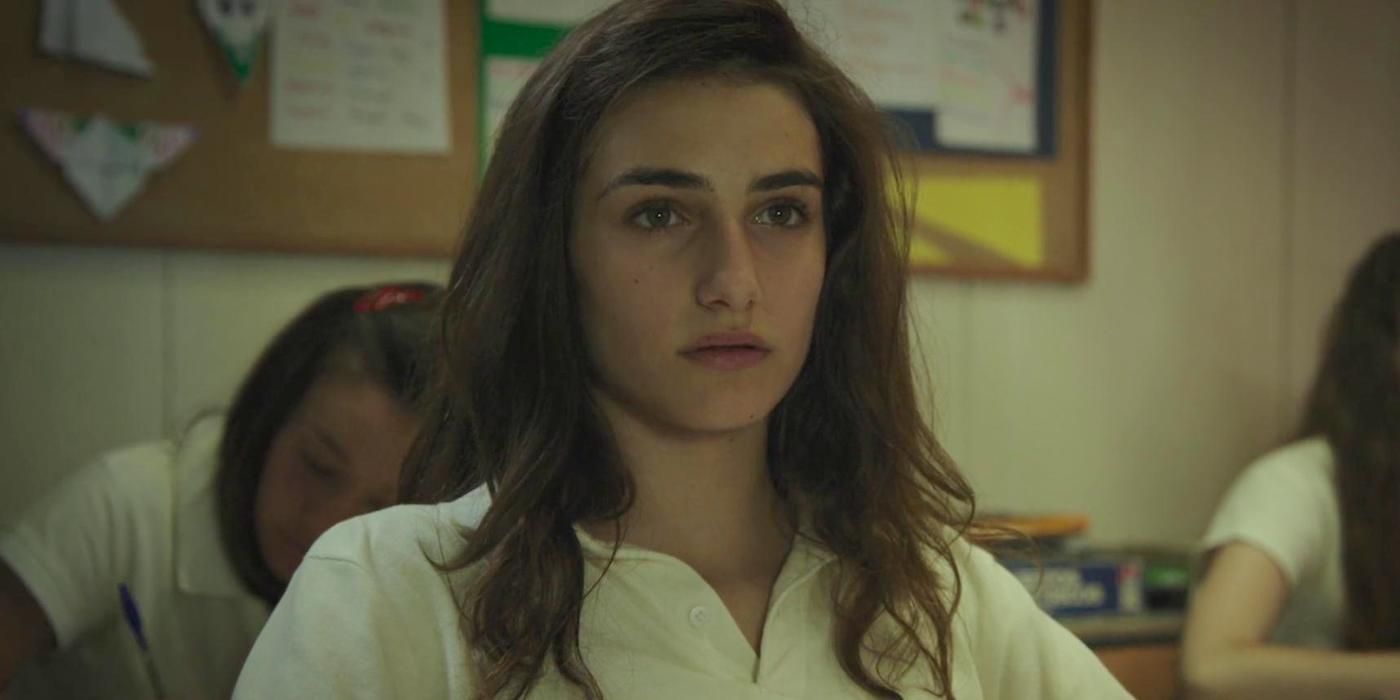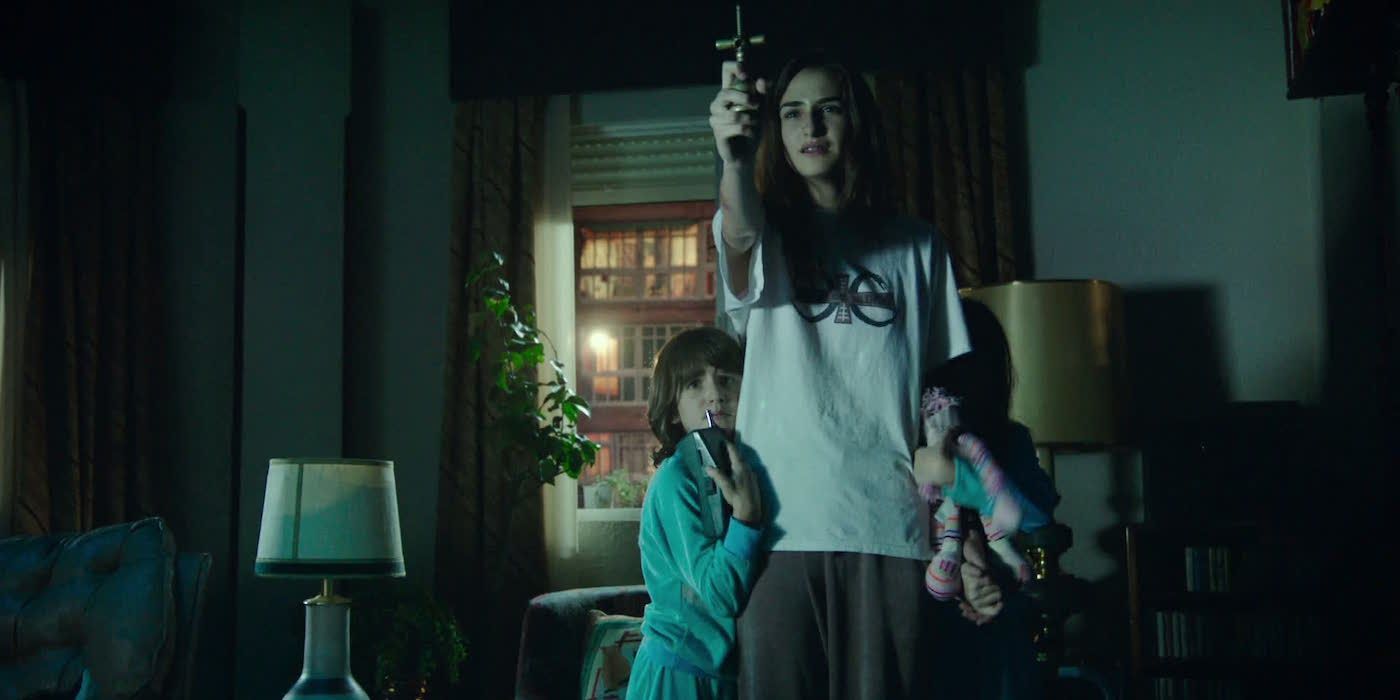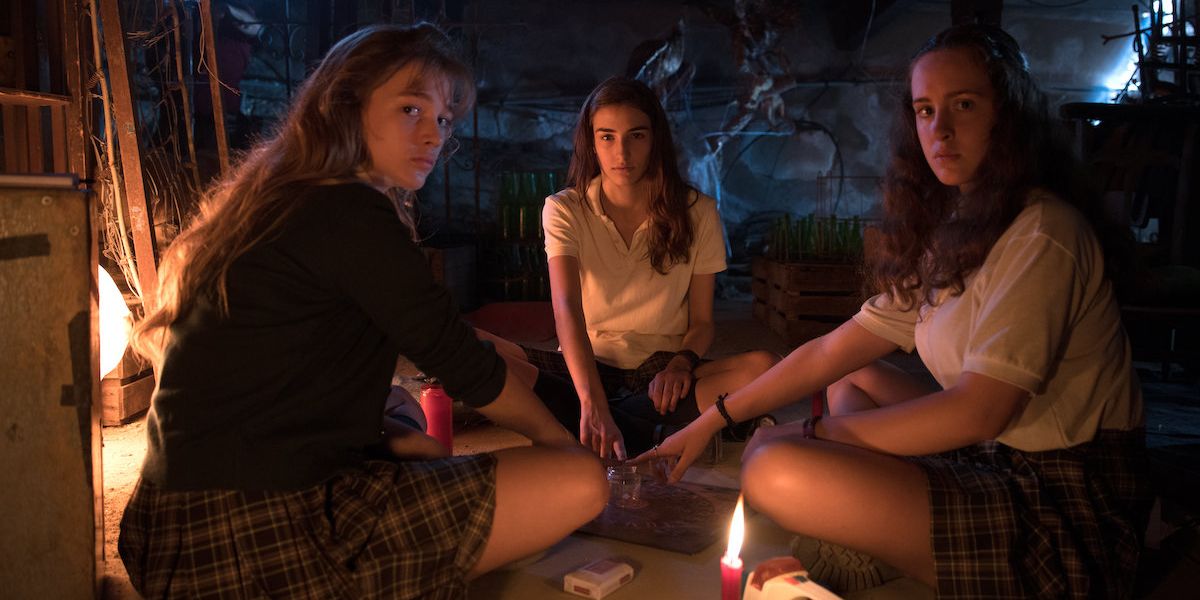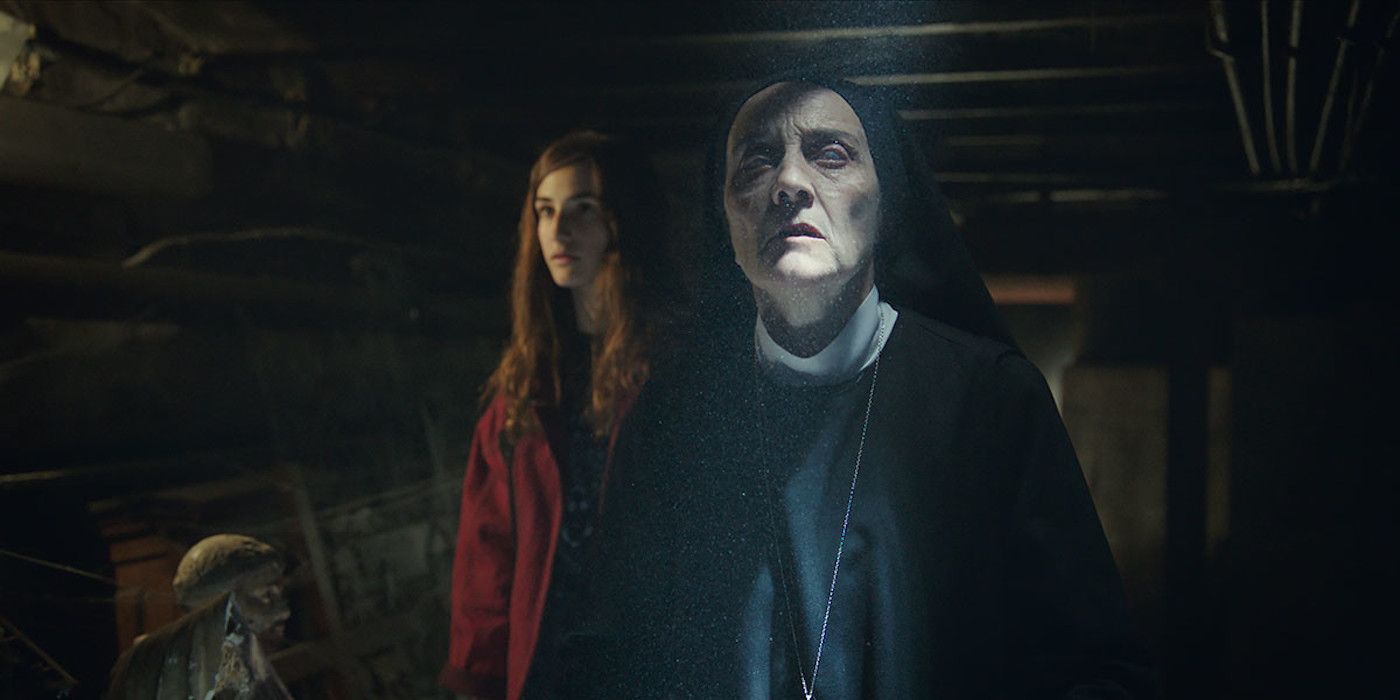The Big Picture
- Spain's rich history of cinema includes renowned directors like Buñuel and Almodovar, and Netflix has had success with Spanish productions like Money Heist and Veronica.
- Veronica is a critically acclaimed Spanish horror film that tells the story of a girl who accidentally summons a demon while trying to communicate with her deceased father.
- The film is loosely based on the infamous Vallecas Case, one of Spain's most well-known stories of paranormal activity, but director Paco Plaza took creative liberties and did not intend for the film to be an accurate account of the case.
With legendary directors like Luis Buñuel and Pedro Almodóvar, it's safe to say that Spain has a rich history of cinema. The sunny Mediterranean country has produced quite a lot of worldwide hits over the years, including the global sensation Money Heist (the most-watched non-English Netflix show before the release of Squid Game), and the success of Netflix España's productions doesn't end there. One of the streaming service's most critically acclaimed horror films also originated from Spain: Paco Plaza's 2017 film Veronica. Veronica had big shoes to fill, being the direct follow-up of Paco Plaza's previous cult hit trilogy of terror, the [REC] series, and it delivered: Veronica won the hearts of horror fans everywhere thanks to its chilling scares, brilliant child actors, and frenetic, infernal energy.
Besides the qualities of the film itself, Veronica also stands out thanks to a harrowing opening and closing scene. As the film begins, we listen in on what seems to be a real-life phone call to the police reporting paranormal activity, and just before the credits roll, we see what looks like very real photos from a criminal investigation. These are small glimpses into what Veronica claims to be the very real events the film is based on, and after sitting through horrifically exhilarating 105 minutes of terror, these glimpses into the "real world" simply serve to seal the sleepless night we were already going to have anyway. Yes, Veronica finds its roots in the very real, very tragic, very eerie unexplained death of a Spanish teenage girl and the subsequent police investigation that, for the first time in Spanish history, officially reported paranormal activity relating to a case. But what is the full story? And how did the film build its terrifying rollercoaster ride upon it? With a prequel to the 2017 hit, Sister Death, now on the steamer, it's the perfect time to find out.
What Is Netflix's 'Veronica' About?
As a quick recap: Veronica tells the tale of a young 15-year-old girl called, you guessed it, Veronica (Sandra Escacena), and her accidental summoning of a demon. In an attempt to communicate with her deceased dad, Veronica conducts a Ouija board with a group of friends during a solar eclipse. In place of her father, a demonic entity connects with the group, leading Veronica to smash the glass and break the barrier between worlds, allowing the demon to possess her.
The film then follows Veronica over the next few days as she experiences terrifying and increasingly violent paranormal phenomena surrounding her. The effects of her possession reach a point where they're almost constant, getting more and more extreme until they jump off from her and affect her small brothers at home, turning the possession into a full-fledged house haunting. As both friends and family become more and more skeptical of Veronica because of her strange behavior and wild claims, she tries desperately and hopelessly to rid herself of the demon, eventually resorting to the guidance of a creepy, chain-smoking nun and paranormal expert. The nun, awesomely nicknamed "sister death" (Consuelo Trujillo), mentors Veronica in the dark arts, showing her the sketching of magic runes and the performance of demon-ridding rituals in an attempt to save the girl's soul.
It almost seems like Veronica is going to learn witchcraft and fight off the demon in a badass girl-boss finale, but in a genre where there's always a "final girl" standing victorious, Veronica's outcome is a surprisingly tragic and disturbing one: The teenage would-be heroine is continuously tricked, duped, and outsmarted by her demon possessor until the worst outcome is inevitable... Veronica is finally killed by the demon after being psychologically tortured to breaking point, and her soul is dragged to hell to become another devil's plaything for all eternity. Veronica is a scary-ass film, made scarier by leaving the audience with a horrifying message: "Bad guys can win. Children can be taken by the devil and never returned... Oh, and all of this was based on a true story. Sleep tight, viewer!" Pretty metal, right?
'Veronica' Is Based On the Chilling True Story of the Vallecas Case
It goes without saying, but Paco Plaza obviously took many creative liberties when creating Veronica, playing it fast and loose with the source material of his haunting tale of possession. Although only slightly, the film is based on the infamous Vallecas Case, one of the most well-known stories of supposed paranormal activity in the history of Spain, akin to an Iberian Amytiville horror. So, what happened?
According to Newsweek, the story is as follows: In early 90s Madrid, Spain's capital, a young girl by the name of Estefania Gutierrez Lazaro participated in a Ouija board ritual at school. The séance was an attempt to communicate with one of the participant's dead boyfriends, having died in a motorcycle accident some months prior. According to the first-hand accounts of Estafania's friends and co-participants in the séance, one of the school's teachers (a nun) found the girls in their ritual and proceeded to smash the ouija board, and in that same instant, a kind of strange "smoke" manifested and appeared to enter through Estefania's nose.
According to a TV interview with Estefania's family, Estafania died in the hospital of an "unexplained, sudden, and suspicious respiratory restriction." According to first-hand accounts of Estefania's close circle, the months leading up to her death were full of distress and hysteria: She claimed to be seeing shadows, hearing voices, and being "stalked" by evil forces. Estefania's mother claims that her daughter began speaking in unknown languages and foaming from the mouth and nose periodically. At this point, many rumors have been birthed from the certified claims surrounding the case and have penetrated into the Spanish pop culture discourse surrounding Estefania's death such as scratches appearing on her skin and the girl apparently "levitating," but all that we can say for sure is what those who were around her in the weeks to months prior to death have claimed.
The story doesn't end with Estefania's untimely, tragic death either. In the same TV interview, Estefania's mother Concepción reveals that her father, Estefania's grandad, passed away sometime prior to the teen girl. Due to a turbulent relationship with the family, Estefania's grandad's final wish was "making his family's lives impossible from beyond the grave." The Gutierrez family believes that it was their mean-spirited patriarch who possessed Estefania and took her life, all to torment his offspring. With Estefania dead and both friends and family going on record (and on TV) to confirm their eyewitness reports of demonic possession, the Madrid metropolitan police officially set up an investigation of the Gutierrez family home, as Concepción claimed that the house was haunted.
The official police reports surfaced from the investigation, having been written up by three Madridian officers including Chief Inspector of National Police, Jose Pedro Negri. It's truly frightening what these actual officers claim to have witnessed on the official record: Loud, unidentifiable noises protruding from empty areas of the house, a wardrobe violently swinging its doors open right in front of the police officers in an "unnatural" way with nobody inside, a Jesus figure being torn from its cross, and large, brown stains appearing in various odd places in the house, such as under beds. The police reports were illustrious and haunting, ultimately referring to the unexplained phenomena occurring in the Gutierrez household as "mysterious and rare." In the end, no concrete explanations for what happened to Estefania and her family have ever come to light, and the police reports surrounding the phenomena that followed the young girl's death will forever contain the words "paranormal activity."
How Much of 'Veronica' Is True?
Despite certain elements being the same such as the setting and time period, the brown stains, the broken crucifix, and the set-up of the possession itself, Plaza himself explains in a TIFF 2017 Q&A that he freely invented his own story simply inspired by the Vallecas case. The original story of Estefania and her family served as a starting point, an anecdote of the dark side of Spanish pop culture that has been talked about and mythologized to the point of legend. As a born and bred Spaniard, Plaza had always been intrigued by the Vallecas case and wanted to use it as inspiration, but the director confirms that he in no way intended for Veronica to be seen as an accurate account or documentary of the case.
"In Spain it's very popular, this story, because it is, as we say in the film, the only time a police officer has said he has witnessed something paranormal (...) But I think when we tell something, it becomes a story, even if it's in the news. You only have to read the different newspapers to know how different reality is, depending on who's telling it. So I knew we were going to betray the real events. I just wanted to make a whole vision."
In the end, Paco Plaza created one of the most beloved Netflix horror films on the platform and introduced many fans of horror to one of the most interesting official reports on possible paranormal activity in investigative history. He may not have intended to adapt the true story at any point — simply taking a true story as anecdotal inspiration — but his film serves to illustrate how society loves a good ghost story and will mythologize and build up these kinds of accounts until they're their own beast entirely.
Veronica is streaming on Netflix.





